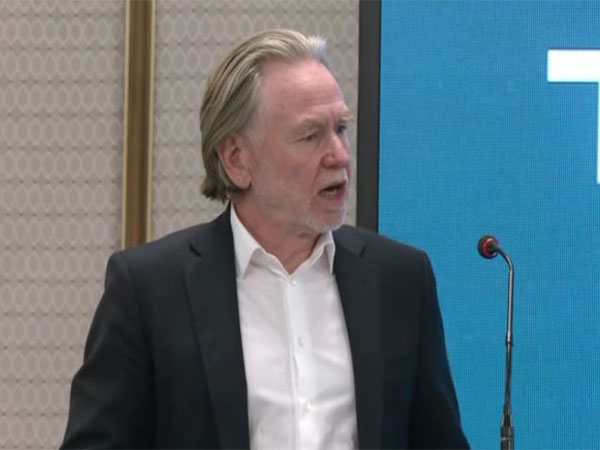New Delhi: India is an “indispensable” partner critical for ensuring strategic equilibrium against the backdrop of China’s “largest military” build-up without any transparency after the Second World War as well as challenges such as coercive trade measures and political interference, Australian High Commissioner Philip Green said on Wednesday.
In an address at the Asia Society Policy Institute, the newly-appointed envoy said India and Australia want to preserve an open, stable and prosperous Indo-Pacific and that both sides see the region the same way and know what needs to be done.
Delving into various aspects of the India-Australia engagement in the last around five years, he said it was the “fastest rise” in a major power relationship that his country has ever experienced and it is expanding further.
In an oblique reference to Washington’s allegations of an Indian link to a failed plot to kill a Sikh separatist and Canada’s charge of “potential” involvement of Indian agents in the killing of a Khalistani extremist, Green said New Delhi and Canberra are managing sensitive issues.
“We are also learning about each other at a deeper level: we’ve had our differences and we’re managing sensitive issues including the concerns we have about alleged activities on US and Canadian territory,” he said.
Green said Australia has begun a “generational reinvestment” in the size, capability and structure of its defence forces including acquiring nuclear-powered submarines and long-range strike systems, in view of various security challenges.
“But Australia’s defences are not enough alone,” he said adding, “We need partners to achieve strategic balance — partners with whom we share a common cause.” “Australia is investing in our network of strategic partnerships. We know that when countries pool their resources and combine their strengths, that is a decisive competitive advantage,” he said.
“And India is an indispensable partner, critical for achieving the sort of strategic equilibrium that we need,” he said in his first public analysis of the India-Australia partnership, its importance and the regional security challenges.
The Australian envoy said China’s military build-up is now the “largest of any country” since the end of the Second World War.
“This build-up is occurring without transparency, or reassurance to the region about its intent. And it is not just in the military domain where we see this,” he said.
“We are seeing strategic competition play out amongst a range of states across multiple domains: from the economic to the diplomatic to the geo-technical, interwoven by a contest of narratives,” he said.
“We are witnessing the use of coercive trade measures, political interference, and disinformation. Such actions by some countries encroach on the ability of others to fully exercise their sovereignty and to decide their own destinies,” he added.
Green argued that such behaviours are “compounding” risks globally, and pose historic and significant dangers to “our ways of life”.
“I’m only four months into my time here, but my impression is that India knows these things better than many others. Australia has felt, in different ways, the impact of these dynamics,” he said.
“And if India and Australia want to preserve an open, stable and prosperous Indo-Pacific, we need each other,” he said.
Green also delved into the bilateral defence ties and said the cooperation is finding new “landing points” all the time.
“For the first time this year, we welcomed an Indian submarine to dock in Australia, and we welcomed visits by two Indian military aircraft to the Cocos (Keeling) Islands,” he said.
Green underlined the need for India, Australia, and other like-minded nations to work together to enhance the “collective security and prosperity”.
Talking about the significant upswing in the India-Australia ties, the envoy said three underlying drivers — necessity, opportunity, and affinity — are propelling this change.
The Australian envoy also referred to US Ambassador Eric Garcetti’s recent comments that India and the US had changed their Facebook status from “it’s complicated” to “we’re dating” while explaining the significant upswing in India-US ties.
“We too have a status update with India. But it’s more than that, isn’t it? We’re not just telling the world we’re together. We’re buying furniture, we’re meeting the families, we’re making long-term plans,” he said.
“We are taking a bigger interest because, as we build this partnership, your trajectory is more important to us than it was before,” he said.
“Much more important. The romance hasn’t gone, we’re just building something more meaningful. We’re nurturing our chemistry and developing something more tangible. Because relationships need substance,” he added.







